5 Travel Stocks to Buy in a Tricky Environment
The COVID-19 Delta variant has thrown a wrench into 2021's travel recovery. But these travel stocks still offer plenty of promise.
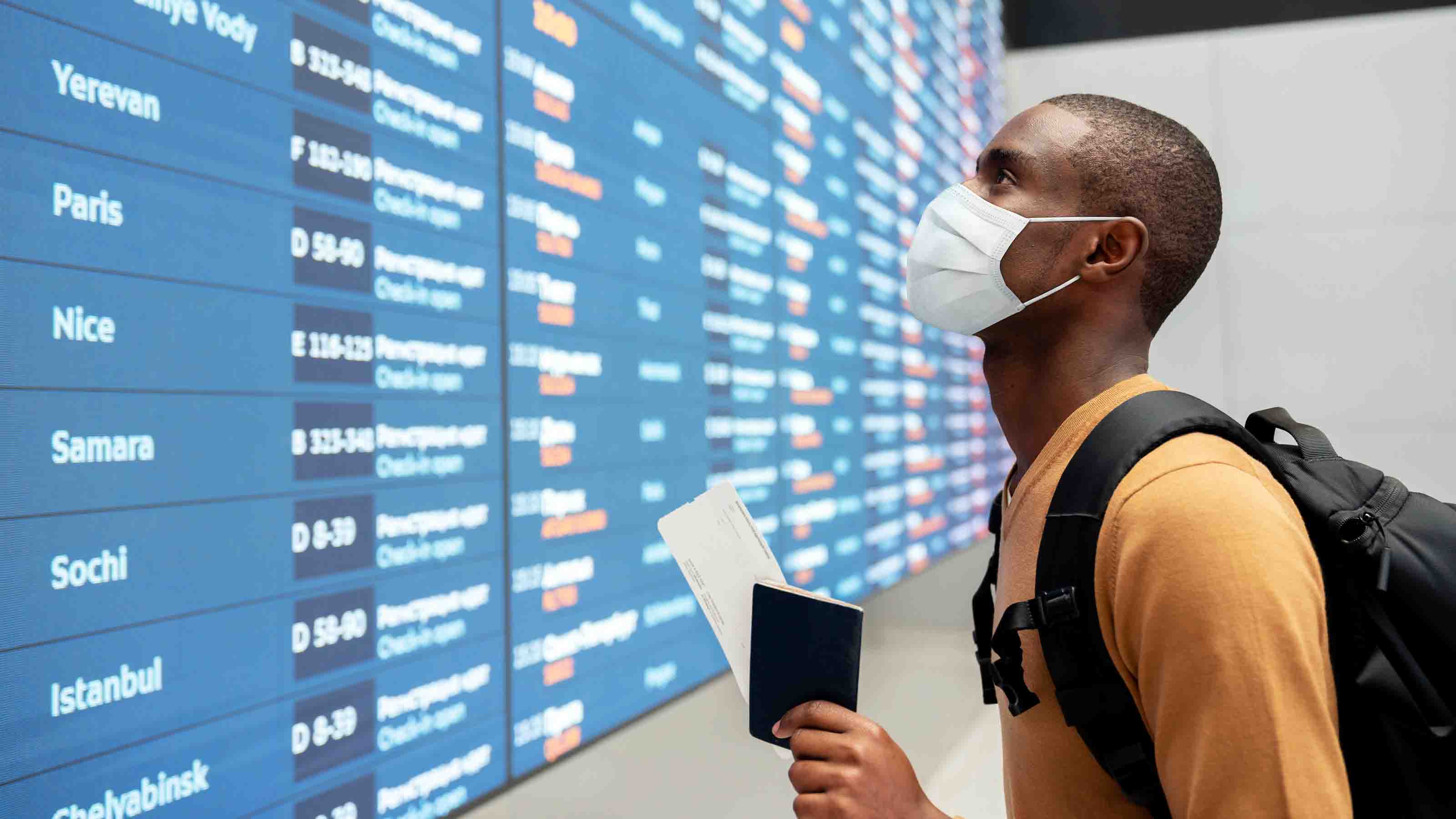
Profit and prosper with the best of Kiplinger's advice on investing, taxes, retirement, personal finance and much more. Delivered daily. Enter your email in the box and click Sign Me Up.
You are now subscribed
Your newsletter sign-up was successful
Want to add more newsletters?

Delivered daily
Kiplinger Today
Profit and prosper with the best of Kiplinger's advice on investing, taxes, retirement, personal finance and much more delivered daily. Smart money moves start here.

Sent five days a week
Kiplinger A Step Ahead
Get practical help to make better financial decisions in your everyday life, from spending to savings on top deals.

Delivered daily
Kiplinger Closing Bell
Get today's biggest financial and investing headlines delivered to your inbox every day the U.S. stock market is open.

Sent twice a week
Kiplinger Adviser Intel
Financial pros across the country share best practices and fresh tactics to preserve and grow your wealth.

Delivered weekly
Kiplinger Tax Tips
Trim your federal and state tax bills with practical tax-planning and tax-cutting strategies.

Sent twice a week
Kiplinger Retirement Tips
Your twice-a-week guide to planning and enjoying a financially secure and richly rewarding retirement

Sent bimonthly.
Kiplinger Adviser Angle
Insights for advisers, wealth managers and other financial professionals.

Sent twice a week
Kiplinger Investing Weekly
Your twice-a-week roundup of promising stocks, funds, companies and industries you should consider, ones you should avoid, and why.

Sent weekly for six weeks
Kiplinger Invest for Retirement
Your step-by-step six-part series on how to invest for retirement, from devising a successful strategy to exactly which investments to choose.
The open road is calling, but the Delta variant of COVID-19 has something to say, too. And that's putting travel stocks in a sticky wicket.
Americans clearly want to travel. Hotel research group STR notes that by early August, average hotel occupancy had bounced back to roughly 64% – just about 9% below pre-pandemic figures, and a sharp improvement from the COVID lows. TSA data also shows that airline travel has remained swift, hovering just below 2 million passengers a day for much of the summer.
However, the highly contagious Delta variant has prevented the U.S. from bursting into a full-blown travel recovery. A Harris poll conducted early last month said that 72% of Americans were checking on the COVID situations at their planned destinations before going. Half said if they were going to somewhere suffering from a boom in COVID cases, they would either postpone or cancel their plans.
This has investors walking a thin line as it pertains to travel stocks. For the most part, the "easy money" has already been made in most of the industry's shares, as the simple act of reopening sent travel plays surging over the past year. Now, demand is swift, but the Delta variant has injected some uncertainty to the situation, all but guaranteeing we won't return to pre-pandemic numbers in the short term.
But that doesn't mean there aren't profits to be made.
Read on as we explore five travel stocks to buy. Each of these picks looks attractive for their own reasons – relatively cheap valuations compared to peers, serving a particularly potent niche, a stellar balance sheet that should allow it to navigate continued difficulty better than the competition, and more.
Data is as of Sept. 6.
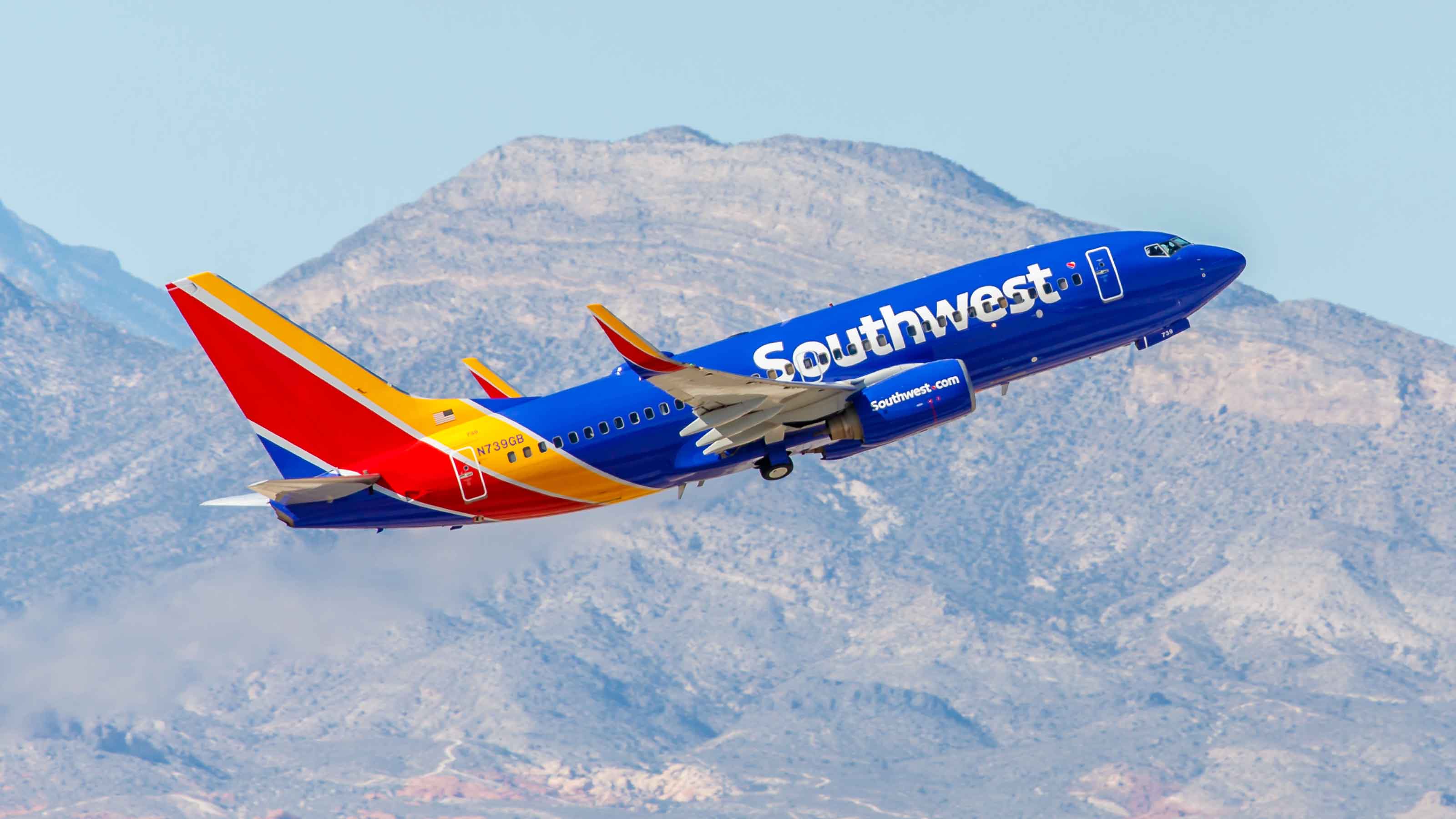
Southwest Airlines
- Market value: $28.9 billion
- Industry: Airlines
It might seem odd to recommend Southwest Airlines (LUV, $48.86) considering the firm just recently slashed its third-quarter guidance as fading booking trends were hinting at a more difficult late summer and early fall.
Still, there's a lot to love about LUV.
Southwest has historically been one of the best-run airlines thanks to its forward-thinking management. Indeed, LUV has used the pandemic to strengthen its position. Back in June, Southwest expanded its operations to include two new cities as well as 78 new and returning routes. It also is expanding its fleet, announcing in June that it increased an outstanding order to Boeing (BA) by roughly three dozen more 737 Max 7 aircraft.
But it's also already pivoting in anticipation of continued Delta-variant difficulties. Southwest said in late August that it would pull back on its schedule – by 27 flights daily between Sept. 7 and Oct. 6, and 162 flights daily between Oct. 7 and Nov. 5 – to account for the possibility of reduced travel thanks to the Delta variant, and to avoid many of the operational issues it struggled with this summer.
Also bullish is Southwest's positioning among low-cost carriers. "With what's likely an uneven recovery ahead, we continue to prefer the low-cost operating model, as their networks naturally align with the recovery in leisure and VFR (visiting friends and relatives) travel, while low direct and indirect flight costs provide some protection for margins," says Susquehanna Financial Group analyst Christopher Stathoulopoulos, who rates the stock at Positive (equivalent of Buy).
Southwest's financials also inspire confidence. As of the end of June, LUV had nearly $18 billion in available liquidity, versus debt of $11.4 billion. Meanwhile, the airline brought its "core" cash burn to just $1 million daily on average during Q2, and even managed positive core cash flow of $4 million daily on average in June. In other words, Southwest can likely survive another period of weakness better than many peers, and is positioned to profit handily once travel does return to something resembling normalcy.
This combination of solid financial footing and quick-acting management makes Southwest one of the best travel stocks you can buy.

Marriott International
- Market value: $43.3 billion
- Industry: Hotels
The pandemic was not kind to hotel chain Marriott International (MAR, $133.00). In 2020, the hotel group – whose brands include its namesake, Ritz-Carlton, St. Regis, Westin and W, among others – suffered its first annual loss since the depths of the Great Recession. At the height of the pandemic, in the second quarter of 2020, Marriott was forced to fully close more than a quarter of its hotels, and revenue per available room (RevPAR) was off 90% year-over-year.
What a difference a year makes.
During Q2 2021, Marriott's RevPAR rebounded by 262.6% across its roughly 7,800 global locations. The firm also managed to produce a profit of $422 million versus a $234 million loss in the year-ago quarter.
The secret to Marriott's sauce comes down to a concept called "Bleisure."
The rise in working from home and the capabilities of cloud computing have allowed a growing number of people to combine leisure travel with business trips. Consumers will either bring family and friends with them on business trips, or they'll extend a business trip to take vacation time. That's great for Marriott, whose portfolio of brands skews toward upper-limited and full-scale hotel brands that best cater to bleisure travelers.
And Marriott is actively courting this crowd. The hotel recently launched its Work Anywhere program, which includes options such as using a hotel room/guest facilities for just one day without staying in the room overnight. Think of it as a WeWork-esque arrangement.
Marriott's shares aren't cheap, but they're not wildly expensive, either, at less than 26 times next year's earnings estimates. Given the potential for both bleisure travel and a more vigorous eventual uptick in travel more broadly once the U.S. gets over the COVID hump, MAR might be worth the price.
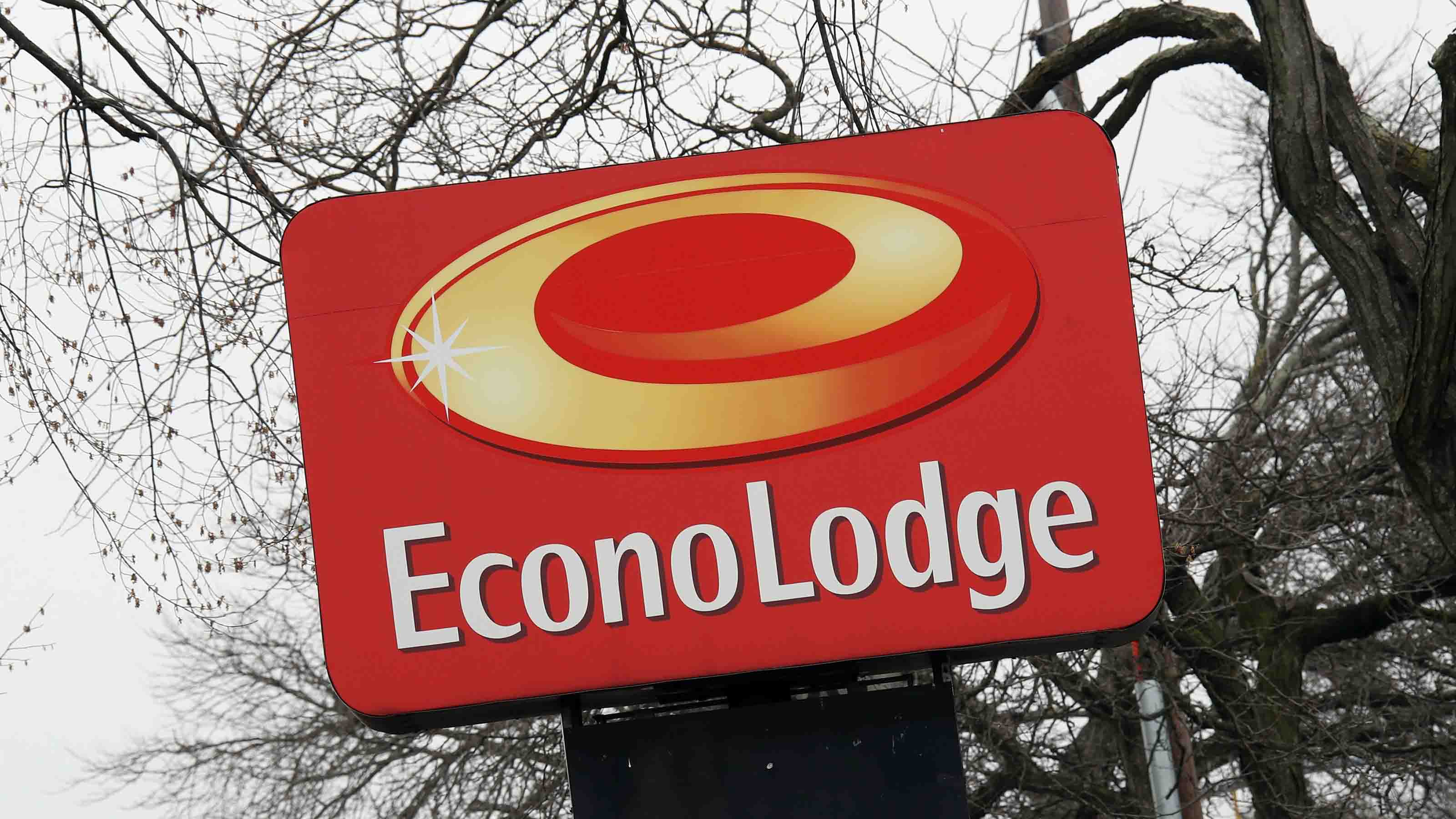
Choice Hotels International
- Market value: $6.6 billion
- Industry: Hotels
Choice Hotels International (CHH, $118.85) is another hotel chain, but that's where its similarities with Marriott end. Its collection of brands – which includes Clarion, Comfort Inn, Econo Lodge, Sleep Inn and Quality Inn – is quite different from Marriott's more luxurious roster.
Still, Choice feeds into another travel trend: the rise of "drive-to-leisure" destinations.
Anyone with kids will tell you that spending the entire year trapped with their little ones during quarantine wasn't easy. The urge to get out of the house was present and constant. While some families were able to scratch the "big travel" itch during early summer, the rise of the Delta variant and a return to school is putting a lid on family travel yet again.
But you could always drive a few hours to that water park or museum and turn it into a quick weekend trip.
That's where the Choice portfolio excels. The firm's nearly 7,100 hotels are firmly in the midscale when it comes to hotel chains, and they're usually located right off of major highways or in suburban areas. They're designed for quick trips.
More interesting to investors is Choice's business model. You see, rather than own and operate hotels, Choice uses a franchise model and collects royalty fees from owners, as well as a percentage of room revenues. This put CHH on better footing during the pandemic, as it wasn't directly responsible for rents or operational costs. At the same time, though, it stands to gain from increased travel without the same risks of traditional operators.
Even with the Delta strain starting to cut into travel, analysts still project Choice's revenues to rebound by 37% this year, to $1.07 billion, driving a 75% recovery in profits to $3.89 per share. They also see profits jumping another 20% in 2022, to $4.67 per share.
Choice's particular blend of offerings and business model might make it one of the best travel stocks to own as COVID continues to complicate the space.

Booking Holdings
- Market value: $94.6 billion
- Industry: Travel services
The growth of the internet over the last few decades has disrupted countless businesses. Among them? Your local travel agency.
One of the predominant reasons for that is the rise of Booking Holdings (BKNG, $2,304.45), which operates in 200 countries under brands such as Booking.com, Priceline, Kayak, OpenTable and Agoda. These sites make it easy for consumers to book their own hotels, their own car rentals, their own restaurant reservations, and their own experiences – often at discounted rates. Increasingly, it's focusing on the "connected trip," where you book all of the above in the same go-around.
As with a large number of internet businesses, Booking Holdings enjoys fat margins. According to S&P Global Market Intelligence, BKNG enjoyed profit margins of 15.3% during pandemic-plagued 2020 – and 38.6%, 39.7% and 38.7% in the three years prior.
Hedge Fund RiverPark sums up Booking's appeal, saying it utilizes a "high margin business model that requires limited capital expenditures, typically less than 3% of revenue, producing $4.5 billion free cash flow for 2019."
BKNG shares likely will ebb and flow as travel demand does, meaning the Delta variant could slow it down in the short-term. But Booking does appear to be one of the most attractive values among travel stocks. While its forward P/E is a little elevated, at 26, things look better once you factor in expectations for explosive growth. The company's five-year price/earnings-to-growth (PEG) ratio – which looks at valuation and factors in expected growth over the next half-decade – is a mere 0.25. (Any PEG under 1 signals that the stock is undervalued.)
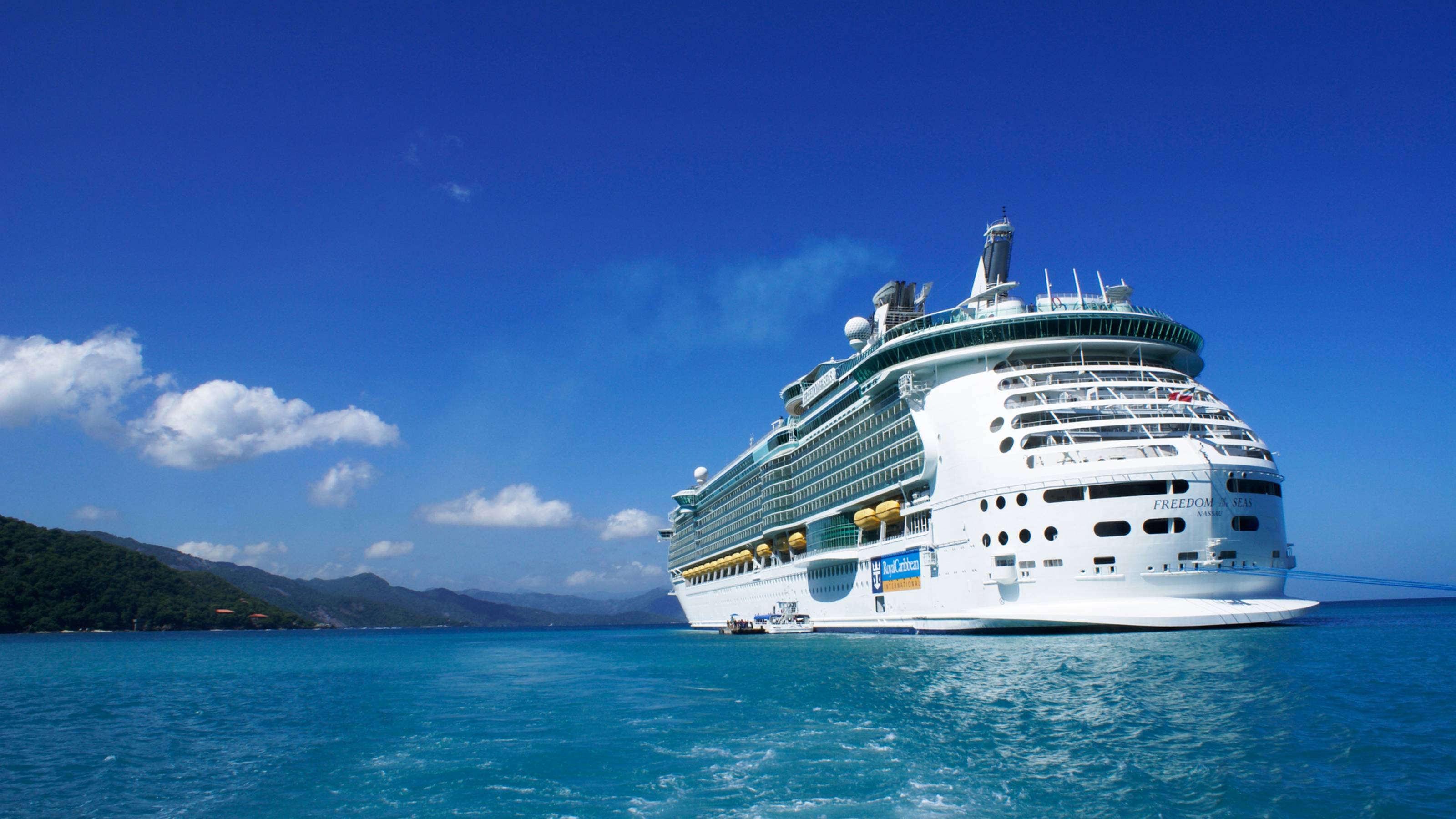
Royal Caribbean
- Market value: $20.2 billion
- Industry: Cruise lines
Cruise operators could be some of the riskiest travel stocks of all. They were one of the market's hardest-hit industries as COVID-19 swept the world, and they've been one of the slowest industries to recover. Indeed, earlier this month, we flagged cruise line firm Royal Caribbean (RCL, $79.43) as a high-risk stock to avoid.
Nothing has changed on the risk front – RCL still stands to suffer mightily if COVID remains a major factor behind travelers' decisions. But it also has much to gain once the coronavirus is more concretely in the rear-view mirror. And the pros are starting to see the stock in a kinder light.
Royal Caribbean cruises are more of a destination in and of themselves rather than just a ship you take to somewhere else. Surf simulators, water slides, bumper cars, musicals – those sound like amenities you could find at a theme or water park, but you can also find them onboard an RCL cruise.
This appeals to travelers with an "if you're going to go, go big" mantra, and there were clear signs people were acting on that urge earlier this year. In a Q1 conference call, Royal Caribbean CFO Jason Liberty noted that March 2021 bookings equaled those during the firm's peak "wave" month in 2019, reflecting an enormous amount of pent-up demand.
Things continued to look good for RCL during the second quarter, with bookings up 50% over Q1. UBS analysts (Buy) note that although the Delta variant has had a "modest impact" more recently on close-in bookings, "Booked load factor for 2022 continues to be within historical ranges, as RCL focuses on holding price as demand for 2022 accelerates."
Just tread carefully. UBS writes that at current liquidity of about $5.0 billion, "at the cash burn rate of around $330M, RCL would have around 15 months of liquidity in a zero-revenue scenario." While a zero-revenue scenario seems unlikely – Royal Caribbean expects to have 100% of its fleet in service by spring 2022 – a significant step back in the fight against COVID could drastically shift sentiment toward this stock.
Profit and prosper with the best of Kiplinger's advice on investing, taxes, retirement, personal finance and much more. Delivered daily. Enter your email in the box and click Sign Me Up.
-
 Dow Adds 1,206 Points to Top 50,000: Stock Market Today
Dow Adds 1,206 Points to Top 50,000: Stock Market TodayThe S&P 500 and Nasdaq also had strong finishes to a volatile week, with beaten-down tech stocks outperforming.
-
 Ask the Tax Editor: Federal Income Tax Deductions
Ask the Tax Editor: Federal Income Tax DeductionsAsk the Editor In this week's Ask the Editor Q&A, Joy Taylor answers questions on federal income tax deductions
-
 States With No-Fault Car Insurance Laws (and How No-Fault Car Insurance Works)
States With No-Fault Car Insurance Laws (and How No-Fault Car Insurance Works)A breakdown of the confusing rules around no-fault car insurance in every state where it exists.
-
 Investing Freebies: Perks You Get for Owning These Stocks
Investing Freebies: Perks You Get for Owning These StocksWhile the biggest investing returns come over the long term, these companies offer instant gratification for investors with several freebies and perks.
-
 The Best Stocks of the Century
The Best Stocks of the CenturyAs we near the 25-year mark, we looked at which stocks have returned the most. Here are the 10 best stocks of the century so far.
-
 The Dollar Index Is Sliding. Is Your Portfolio Prepared?
The Dollar Index Is Sliding. Is Your Portfolio Prepared?The dollar's fall has been troubling because inflation appears to be constrained and the economy has been strong. Here's what it means for investors.
-
 Dividend Increases: 3 Stocks With Rising Payouts
Dividend Increases: 3 Stocks With Rising PayoutsWhile dividend growth has been slowing, certain stocks have raised their dividend payouts. These are some selections.
-
 Stock Market Today: Stocks Extend a Quiet Winning Streak
Stock Market Today: Stocks Extend a Quiet Winning StreakThe S&P 500 Index could actually close April with a monthly gain, which would be an extraordinary sign of market resilience.
-
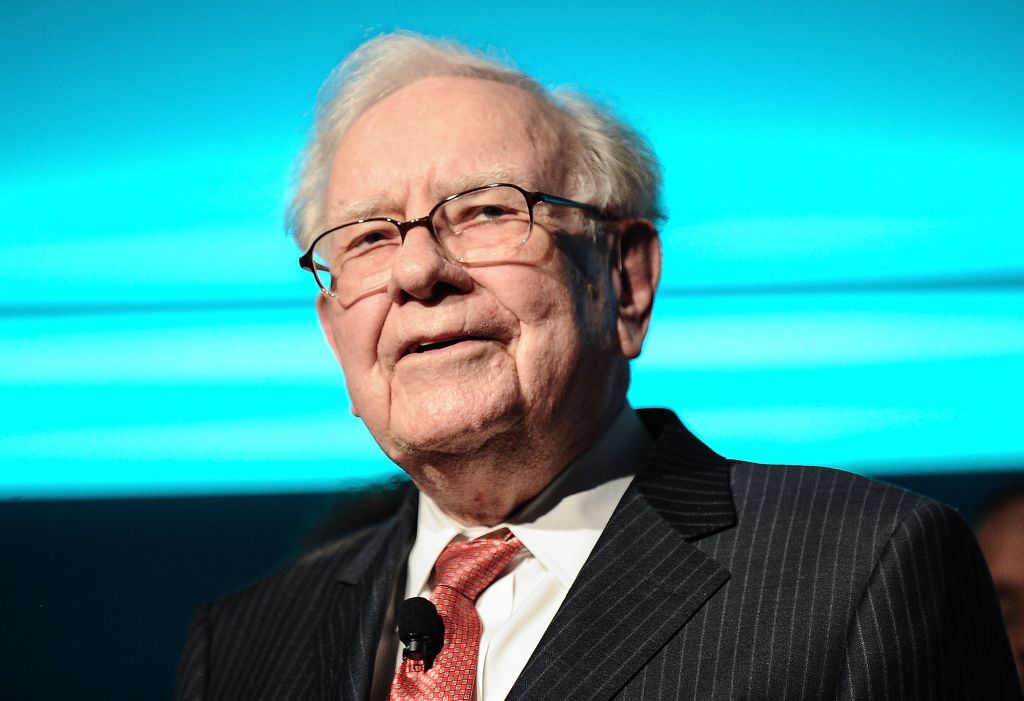 7 of Warren Buffett's Biggest Misses
7 of Warren Buffett's Biggest MissesThe Oracle of Omaha's investing wins are well known up and down Wall Street, but no one bats a thousand. Here are some of Warren Buffett's biggest misses.
-
 The 24 Cheapest Places To Retire in the US
The 24 Cheapest Places To Retire in the USWhen you're trying to balance a fixed income with an enjoyable retirement, the cost of living is a crucial factor to consider. Is your city the best?
-
 Travel Stocks I've Got an Eye On
Travel Stocks I've Got an Eye OnGoing places to gather experiences, learn and relax is what people do as income grows and these travel stocks are likely to benefit from that trend.
